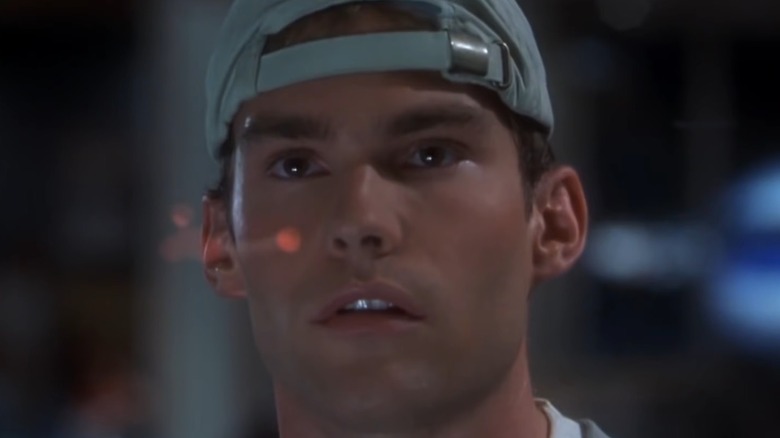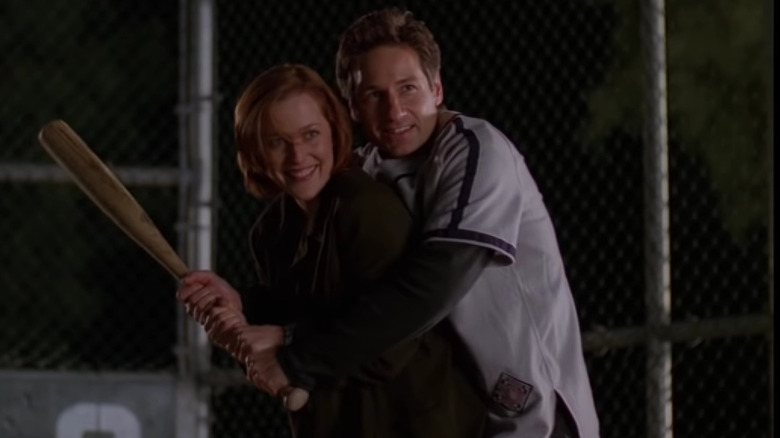The Unexpected Inspiration Behind Final Destination May Surprise You
The "Final Destination" horror franchise is one of the more unusual success stories in the genre. For one thing, the antagonist of the series is not a monster or killer, but the abstract concept of death itself, preying on a series of hapless individuals who, due to one twist of fate or another, are living on borrowed time. If you've seen any of the films, you likely understand their appeal. But what you might not know is the precise circumstances of the series' creative genesis, as well as its surprising connection to another horror-tinged science-fiction franchise that goes all the way back to the 1990s.
As it turns out, "Final Destination" wasn't originally conceived as a movie at all. The tale of deadly premonition, grisly turns of fate, and the seemingly impossible task of outrunning death got its start as a spec-script idea for one of the most venerated sci-fi TV shows of all time.
Final Destination was originally going to be an X-File
The truth was originally put out there in a Bloody Disgusting interview with "Final Destination" co-writer Jeffrey Reddick in June 2015. According to Reddick, the idea that eventually became 2000's "Final Destination" began as a pitch the writer made for an episode of the iconoclast TV show "The X-Files" back in the '90s. The pitch script, entitled "Flight 180," had a familiar plot that followed a group of people cheating death who died in mysterious ways afterward. As you can imagine, the mystery was then investigated by Agents Mulder (David Duchovny) and Scully (Gillian Anderson).
"I decided to use the basic concept of people cheating Death as the catalyst," Reddick explained. He went on to elaborate, "I had Scully's brother have the premonition, which made the story more personal. I won't spoil the rest, but for the spec script, the concept isn't front and center, it's more about Scully, Mulder and her relationship with her brother."
As the story goes, the pitch never made it to "The X-Files," and instead, it got picked up by an executive at New Line who saw its potential as a feature film. The process naturally required some "tweaking" by Reddick. Of the differences between the two scrips, Reddick said, "Death worked differently in ["The X-Files"] version. Since Mulder and Scully had the believer/skeptic relationship, I had to keep Death vague enough, but clear enough, to fit the concept and investigation into a one-hour show."
The rest is horror history. And the next time you see "Final Destination," you might find it difficult not to imagine Mulder and Scully investigating the case.

